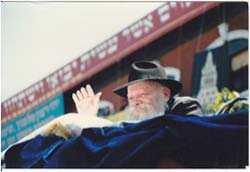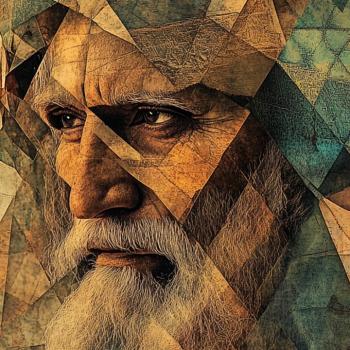 Reform
Reform
For all the mind-bending cultural, social, and technological changes that recent decades have brought, the rabbi's essential and indispensable role remains constant: to teach, to preach, to counsel, and to enrich and deepen the significant moments of people's lives. Indeed, it is this very combination of roles that makes the rabbi's opportunity unique: to be able to affect the entire person -- the mind, the heart, and the will, in moments of strength and triumph and in moments of weakness and pain. The deeper the rabbi's involvement in the lives of the members of the congregational community as trusted friend, as admired fellow traveler, and as source of insight and direction, the greater the opportunity to teach, to preach, and to comfort. This means that we have the opportunity to offer our people a conception of life in which the needs of the moment and the call of eternity, the requirements of the individual and those of the community are all given their due in the one institution of Jewish life that combines them all in the promise of a life of wholeness. This is, and always has been, the sacred calling of the rabbi.
Rabbi Roger Klein, The Temple-Tifereth Israel, Cleveland, OH
Conservative
A pulpit rabbi should be a leader with a vision. Her vision sets the direction for the congregation's future. She should seek out lay leaders to join her in creating a compelling and relevant community. We are blessed to live at a time in history when there is a State of Israel. A rabbi should help those around her learn about Israel, creating connections between Jews in the Diaspora and Israel. A rabbi should study Jewish texts regularly. She cannot effectively teach or lead if she is relying only on what she learned in rabbinical school. A rabbi should be prepared to re-examine issues that are challenging the Jewish community. Over time, the needs of the community will change and a wise rabbi will be prepared to change her views. A rabbi should nurture her own spiritual self. In order for a rabbi to help others experience God's presence in their lives, she must devote time and attention to her relationship with God.
Rabbi Amy Wallk Katz, Temple Beth El, Springfield, MA
 Modern Orthodox
Modern Orthodox
We are living through a historic shift in the role of rabbis. As higher education spreads to the masses, people become more secular. Religion (or faith in God) will not disappear, but God is more hidden in this new world. The religious action will be in "secular" activities. Examples: uncovering God's presence among the poor and oppressed and bringing them faith-motivated social justice; healing the body -- the physical icon of God's presence -- by working with the miraculous genetics and bodily systems to cure illness; establishing just and loving relationships with family, friends, and all humans because we "fear God" and honor the image of God in every person; giving over information to enable people to make good judgments in everything they do. In the past, people turned to rabbis for authoritative answers from the tradition. Now people feel competent to apply values to their daily work and to their secular (but actually religious) activities. If the rabbi claims authoritative and definitive knowledge and demands obedience, he/she will have little credibility. Nor will threats be effective -- i.e., that God has decreed certain actions/rituals and will punish non-compliance. The wise rabbi will shift from stressing institutional authority to serving as teacher, from decider to enabler, and seek to persuade by the power of wisdom and to influence by personal role model. Many will serve in non-synagogue settings. Enabler/teacher, role model, conduit of God's presence -- this is the rabbi's role in the age of secularism.
Rabbi Yitz Greenberg, New York, NY
Sephardi
Many a sage has attempted to define the role of a rabbi with reference to a specific facet of rabbinical duty. They have claimed that the essential function of a rabbi is either teaching the Torah, battling the perpetrators of injustice, comforting the bereaved, visiting the sick, or inspiring the weary. I believe that, in fact, all of these components of the rabbi's job description are the expressions of a single, underlying mission with which he has been charged -- namely, to sanctify the name of G-d. When a rabbi teaches Torah, the beauty and majesty of the Creator's wisdom is made manifest. By the same token, when a rabbi refuses to tolerate persecution, oppression, or injustice, and when a rabbi lends a hand to the downtrodden, supports the fallen, and remembers the forgotten, he brings recognition to G-d whose Torah inspired him to behave in this manner. Ultimately, the successful rabbi is one who, by his words and deeds, demonstrates an understanding of and commitment to the Path of God, which is then studied, imitated, and emulated by others.
Rabbi Joshua Maroof, Magen David Sephardic Congregation, Rockville, MD




